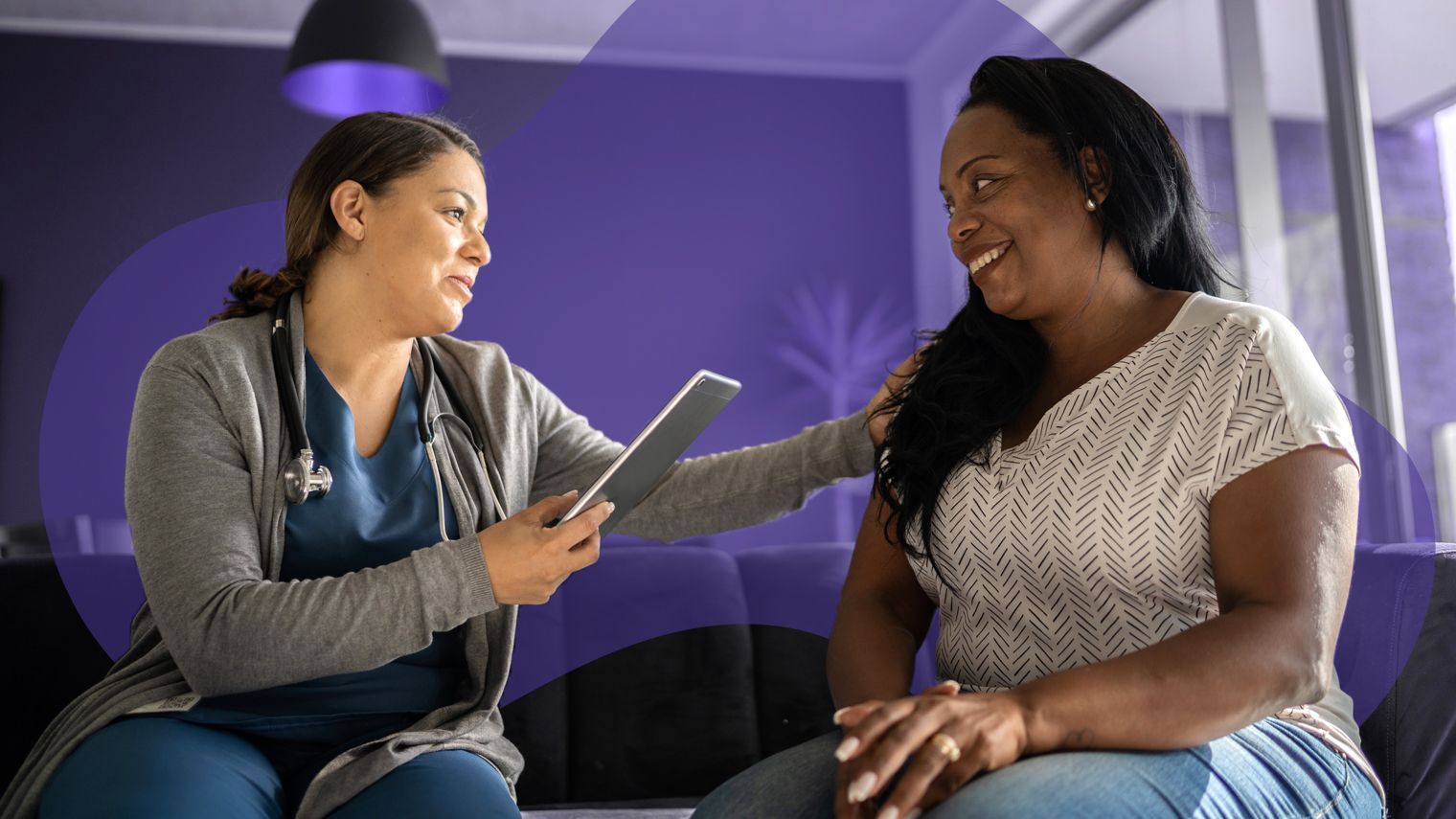The Importance of Building a Therapeutic Relationship with Your Doctor When You Live with IBD
December 12, 2022
Content created for the Bezzy community and sponsored by our partners. Learn More

FG Trade/Getty Images
When you have a trusting relationship and feel cared about, it’s easier to discuss — and follow through with — the tough stuff.
When you have a chronic and life-altering diagnosis like Crohn’s disease or ulcerative colitis, it’s very important to build a therapeutic relationship with your healthcare professional so you can have the best possible care.
A therapeutic relationship is one built upon trust, understanding, and supportive, nonjudgmental behavior. It reflects warmth and caring, and promotes communication, allowing the patient and the doctor to have comprehensive discussions and make decisions together, especially during stressful times.
I am in a unique position: I am both a Crohn’s patient and a physician, so I have been on both sides of the exam table. There are many ways — and reasons — for patients to help foster a therapeutic relationship.


The importance of building a therapeutic relationship
When you are diagnosed with inflammatory bowel disease (IBD), it’s important to have full trust in your medical team, as IBD is a lifelong disease with the potential for a lifetime of complications. It is important to understand what IBD is and all the ways in which it can affect you.
When you can fully trust and understand your healthcare professional, you may feel more comfortable asking questions, no matter how basic they may seem, so you are better equipped to follow your treatment plan.
If there is a part of the treatment plan you do not fully understand or feel comfortable with, you should be able to discuss your concerns with your healthcare professional. A good healthcare professional will take the time to answer your questions to the best of their ability, and potentially modify the treatment plan to meet your individual needs. In this way, you will feel heard and understood.
If you experience an IBD flare or develop a complication, you may require a change in treatment, such as a new medication or a potential surgery. These can certainly be scary considerations, but the conversation will go much more smoothly when you have full trust in your healthcare professional and can freely voice any question or concern you may have.
How to help develop a therapeutic relationship
While a good healthcare professional should demonstrate excellent listening skills, show their expertise, and establish great rapport with you to help develop a therapeutic relationship, you can take several important steps as well:
- Prepare for your appointment: Think about the most important points you want to discuss at your appointment and write them down. This way, you are less likely to forget what you wanted to talk about when the conversation is underway, and more likely to have a productive appointment.
- Bring someone with you to your appointment: It can be very difficult to remember all the medical details your healthcare professional shares with you, especially when they relate to a new diagnosis, a change in treatment, or a complication. If you bring along a loved one or friend whom you trust, you will not only have support during a potentially difficult conversation, but you will also have another person to help remember all the details.
- Stay in touch with your healthcare professional: Of course, it’s important to share any new major diagnoses you receive. But also be sure to let your healthcare professional know if you experience a change in or worsening of any symptoms. Be sure to regularly schedule follow-up appointments to stay on top of your health.
- Stay positive: Living with a chronic disease is a challenge, and it can affect your mental health. Many people find it helpful to seek counseling to help cope with the chronic nature of a disease and the many stressors of life.
What if your relationship with your healthcare professional isn’t so therapeutic?
If you find that you are often interrupted or do not feel heard or comfortable asking your healthcare professional questions, consider discussing this at your next visit. If, despite your best intentions and efforts, you do not notice any improvements, consider switching your care to another healthcare professional or another practice.
I’ve had really great success at a specialized IBD center. The medical professionals there are experts in the field of IBD and include gastroenterologists, surgeons, social workers, therapists, dietitians, and other ancillary staff who work almost exclusively with people who have IBD.
If you are not satisfied with your current care or if you have a complicated case of IBD, consider seeking a second opinion at an IBD center or switching your care to an IBD center.
The takeaway
In the end, it’s important to build a therapeutic relationship with your healthcare professional to achieve the best possible medical care. This relationship may grow quickly or develop more slowly over time, depending on the individual circumstances.
If something does not feel right about your relationship with your healthcare professional, don’t feel bad about switching your care elsewhere. What is most important is that you trust your medical team and are on an appropriate treatment plan for your condition.
Medically reviewed on December 12, 2022
1 Source


Like the story? React, bookmark, or share below:
Have thoughts or suggestions about this article? Email us at article-feedback@bezzy.com.
About the author